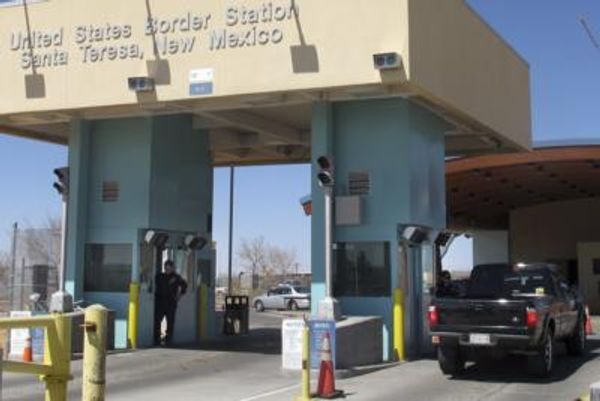
Eleven months ago, on May 17, 2021, the International Energy Agency released a report in which it urged every nation on earth to immediately halt new investments in efforts to find and produce new reserves of oil. In order to achieve its goal of ‘Net-zero by 2050,” the agency said, every government on earth would need to implement policies designed to create “a huge decline in the use of fossil fuels.”
“Beyond projects already committed as of 2021,” says the IEA’s report, “there are no new oil and gas fields approved for development in our pathway, and no new coal mines or mine extensions are required. The unwavering policy focus on climate change in the net zero pathway results in a sharp decline in fossil fuel demand, meaning that the focus for oil and gas producers switches entirely to output – and emissions reductions – from the operation of existing assets. Unabated coal demand declines by 98% to just less than 1% of total energy use in 2050. Gas demand declines by 55% to 1 750 billion cubic metres and oil declines by 75% to 24 million barrels per day (mb/d), from around 90 mb/d in 2020.”
Since that report was issued by the energy arm of the United Nations, here is what has actually happened:
- On August 4, 2021, Fatih Birol, who heads the IEA, told a meeting of Catholic Church leaders that “there is no need to invest in oil, gas or coal.”
- On October 13, 2021, Mr. Birol issued this amazing tweet in which he acknowledges the dangerous level of under-investment in oil and gas globally in recent years, and predicts “more energy market turmoil:”

- But demand for oil and gas has not been “stagnant or falling;” it has in fact been rising rapidly, bringing commodity prices along with it. Thus, on November 25, Mr. Birol criticized OPEC and other oil producing nations for creating an “artificial tightness” in oil markets by their refusal to produce more oil;
- In early November, as the failure of the wind industry in Europe had created a looming energy emergency on that continent, European governments began a frantic scramble to restart coal and natural gas power plants they had ordered mothballed and to purchase new supplies of those fossil fuels;
- In late November, U.S. President Joe Biden, worried over his falling poll numbers amid the high prices for oil and gasoline at the pump, ordered the release of 50 million barrels of crude from the Strategic Petroleum Reserve (SPR);
- In mid-December, reporters for Bloomberg identified a flotilla of no fewer than 42 LNG tankers carrying U.S. natural gas to European ports in a single day to help keep homes heated and lights glowing on that continent;
- On February 16, Mr. Birol again publicly urged OPEC+ to produce more oil;
- In early March, with the price for Brent crude sitting right at $100 per barrel and the average U.S. gasoline price coming in at $3.57 according to the AAA, Vladimir Putin ordered the Russian army to invade Ukraine;
- On March 14, Mr. Birol again urged oil producing countries to produce more oil;
- In response to Putin’s invasion, President Biden sent U.S. emissaries to Venezuela to plead with the Maduro government that the U.S. has been sanctioning for several years to - you guessed it - produce more oil to send to the United States;
- As Mr. Biden was banning new imports of Russian oil into the U.S., he also placed calls to Saudi Arabia and the United Arab Emirates to request that those countries produce more oil. Those calls reportedly went unreturned;
- Shortly thereafter, following half a year of asking pretty much every other oil-producing nation on earth to produce more oil, U.S. Energy Secretary Jennifer Granholm, speaking at the CERAWeek conference in Houston, finally got around to asking U.S. oil producers to - no surprise here - produce more oil;
- The next day, several Democratic members of congress introduced a bill that would levy a new Windfall Profits Tax on - again, you guessed it - domestic oil producers;
- Five days after that, the Securities and Exchange Commission introduced a proposed regulation governing ESG-related disclosures that many believe is an effort to further restrict the oil industry’s access to capital markets;
- On March 25, without vetting the idea with leading U.S. LNG companies, President Biden committed America’s LNG export industry to massively increase its deliveries to Europe in the coming 8 years;
- Four days later, the President introduced his new budget proposal, a proposal that proposes once again to repeal every tax treatment in the IRS Tax Code specific to oil and gas and implement billions of dollars in new taxes on the industry;
- Two days after that, Mr. Biden announced an even bigger withdrawal of crude from the SPR of 1 million barrels of oil per day for the next 180 days. As part of his announcement of the plan, the President excoriated the domestic oil industry for - you guessed it again - not making the major investments required in the finding and production of more oil.
Either the world wants more oil and gas, or it doesn’t. The U.S. and other governments that are members of the UN and thus subscribers to the IEA either want to meet this “Net-zero by 2050” goal, or they don’t. They either believe the pronouncements from the IEA, or they don’t really believe them. Oil and gas companies can either make the investments required in finding the new reserves needed to meet the world’s obviously-growing demand for oil and natural gas, or they can’t.
Across the 11 months since the IEA urged those governments to stop new investments in oil and other fossil fuels, it has become crystal clear that these countries and their policymakers not only want more oil and natural gas, they in fact need more oil and natural gas. Often, as in the case of Biden’s new order to draw down the SPR, the motives for their policy actions are mainly political in nature, but the need is clear nonetheless.
But if you wonder why industry leaders often complain that their companies are constantly whip-sawed by a unending drumbeat of conflicting statements and policy actions coming from national and global government agencies, the very abbreviated litany listed above serves as a pretty strong reference point.
This is no way to run an energy transition. It is no way to attain “Net-zero by 2050.” Something has got to give.







